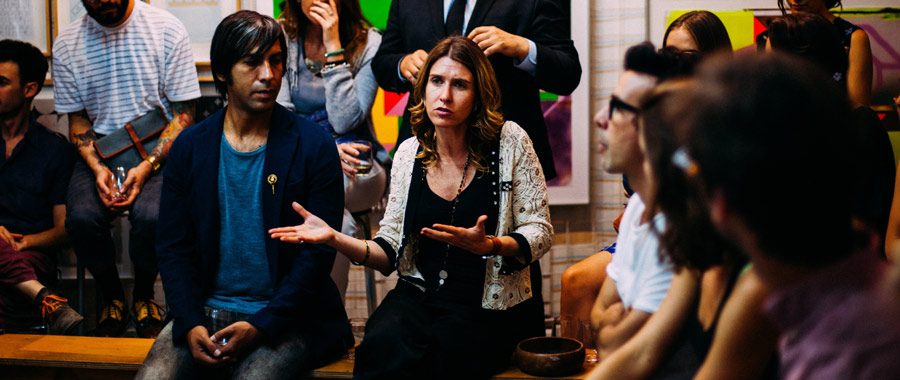Baha’i consultation is a fundamental aspect of the Baha’i Faith, serving not only as a method for decision-making but also as a profound spiritual practice. It is deemed essential for fostering unity and collaboration among individuals. Within this mechanism, various principles are utilized that reflect the rich tapestry of Baha’i teachings. Herein, we will delve into the intricate workings of Baha’i consultation and the multifaceted benefits that arise from its implementation.
The essence of Baha’i consultation is anchored in the belief that truth is multifaceted, possessing innumerable dimensions. Therefore, it is imperative to approach discussions with an open heart and mind, welcoming diverse opinions and perspectives. This qualitative richness serves to illuminate the multiplicity of truths that exist. Baha’is are encouraged to refrain from personal biases or prejudices while engaging in discourse. Such an attitude fosters an atmosphere conducive to transparency and honesty, vital elements for any constructive dialogue.
One of the hallmark characteristics of this consultative process is the emphasis on collective decision-making rather than individual opinions prevailing. Each participant is invited to contribute freely, with the understanding that the deliberative group spirit supersedes individual viewpoints. This collective approach engenders an environment where decisions are derived from a synthesis of ideas rather than dominated by hierarchical structures or personal agendas.
Moreover, confidentiality plays a pivotal role in the consultation process. Participants are urged to engage in discussions with the assurance that what is shared remains within the confines of the group. This culture of confidentiality not only engenders trust among participants but also promotes genuine expression of thoughts without the fear of external repercussions. The protective veil of confidentiality ensures that constructive criticism and radical ideas can flourish in a safe space.
Another vital principle is the elevation of the collective over the individual. The notion that consultations should be aimed exclusively at the welfare of the community fortifies a shared sense of responsibility. Baha’i teachings emphasize consulting in a manner that prioritizes the welfare and progress of humanity as a whole, rather than fostering self-serving interests. This altruistic focus allows for the emergence of solutions that benefit a larger constituency, addressing broader societal concerns.
Guiding the discussions is a stringent adherence to the principle of seeking the truth. Participants are tactfully encouraged to strive for the essence of the issue at hand, putting aside personal feelings or attachments to specific outcomes. The ultimate aim is not merely to arrive at a decision but to unearth the truth and align actions with the divine will. This relentless pursuit of truth necessitates humility, as it acknowledges that each participant may have only a partial grasp of a given situation.
It is also noteworthy that the spirit of consultation extends beyond group discussions. The Baha’i teachings advocate for the incorporation of consultation into personal practices. It encourages individuals to self-reflect and consult with their inner selves or with close companions when faced with choices or dilemmas. This internal consultation serves as a crucible for spiritual development, allowing individuals to examine their motivations and convictions through a lens of sincerity and honesty.
Furthermore, the consultative process is infused with a sense of prayer and spirituality. It is common for Baha’is to begin consultations with prayer, seeking divine guidance and inspiration. This practice reinforces the understanding that consultation is not merely a secular exercise but a sacred responsibility that aligns individuals with a higher purpose. The intertwining of spirituality within consultation engenders a deeper connection among participants, fostering an environment of shared values and communal aspirations.
Conflict resolution is another significant facet of Baha’i consultation. When differing viewpoints arise, the principles of consultation encourage individuals to embrace differences with fortitude rather than defensiveness. The Baha’i model advocates for dialogue over discord, facilitating conversations that hold the potential to transform conflict into collaboration. By embracing differences, individuals may identify common ground, thereby transcending polarizing perspectives and working toward mutual understanding.
As participants engage in this sacred practice, they gradually mold a robust framework of mutual respect and love. The cultivation of such dynamics not only enhances interpersonal relationships but also strengthens communities. Moreover, the Baha’i principles of diversity and inclusion manifest vividly during consultations, providing an opportunity for various demographics—including gender, age, culture, and background—to engage in collective discourse.
The cumulative impact of Baha’i consultation is profound. By contributing to individual development and social cohesion, this process serves as a beacon of hope for collective well-being. It transcends beyond mere organizational mechanics, establishing a moral compass that guides actions and decisions towards the betterment of humanity.
In conclusion, Baha’i consultation embodies a multifaceted, holistic practice steeped in principles of love, unity, and truth-seeking. Through its collective nature and emphasis on the welfare of the community, it offers a transformative approach to interaction and decision-making. As the Baha’i community continues to integrate these practices into its daily operations, the potential for fostering a deeply connected, enlightened society is markedly enhanced. This enduring legacy of consultation stands as a testament to the Baha’i commitment to harnessing the collective wisdom of humanity in service of a more harmonious world.
